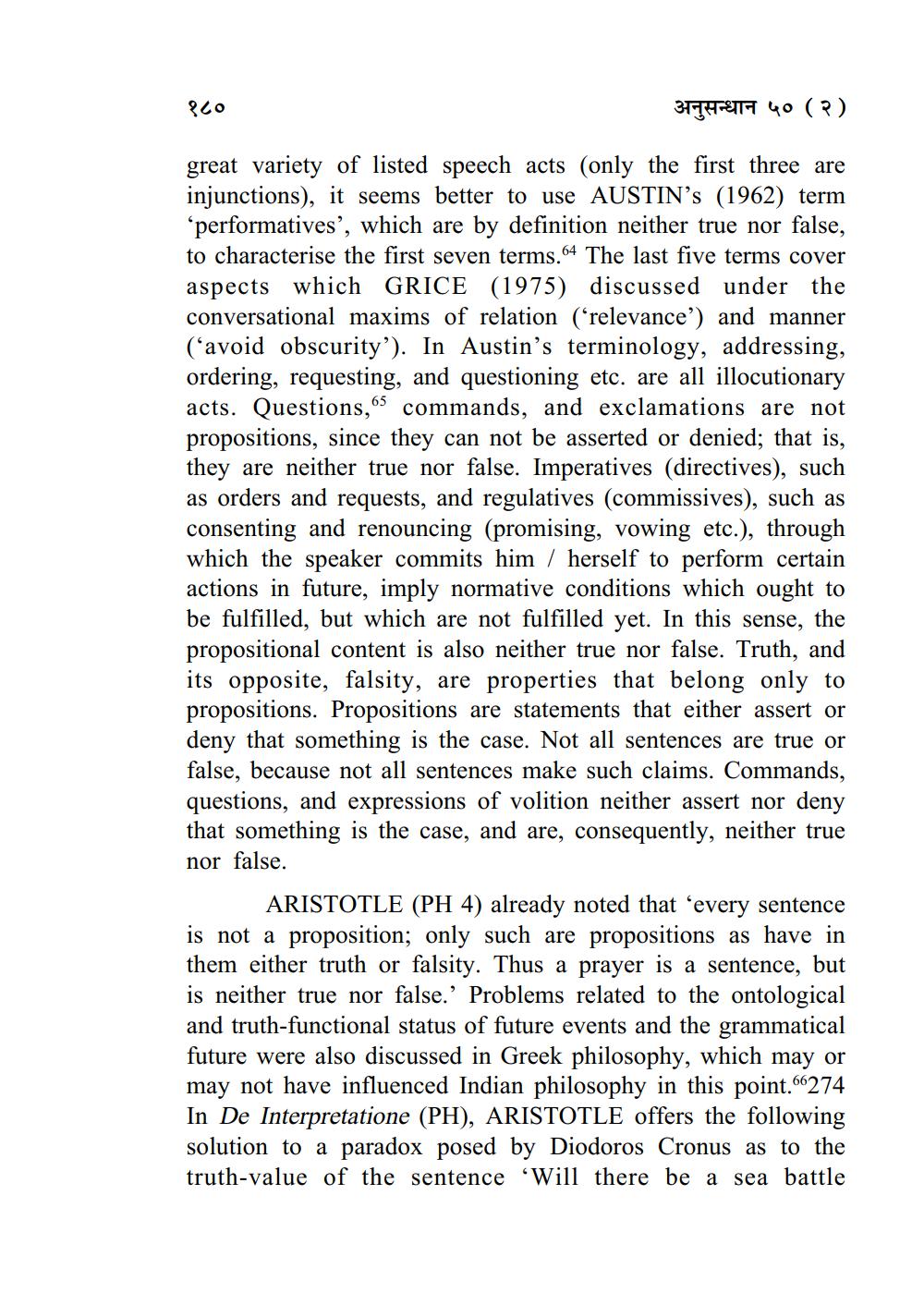________________
१८०
अनुसन्धान ५० (२)
great variety of listed speech acts (only the first three are injunctions), it seems better to use AUSTIN's (1962) term 'performatives', which are by definition neither true nor false, to characterise the first seven terms.64 The last five terms cover aspects which GRICE (1975) discussed under the conversational maxims of relation (relevance') and manner ('avoid obscurity'). In Austin's terminology, addressing, ordering, requesting, and questioning etc. are all illocutionary acts. Questions,65 commands, and exclamations are not propositions, since they can not be asserted or denied; that is, they are neither true nor false. Imperatives (directives), such as orders and requests, and regulatives (commissives), such as consenting and renouncing (promising, vowing etc.), through which the speaker commits him / herself to perform certain actions in future, imply normative conditions which ought to be fulfilled, but which are not fulfilled yet. In this sense, the propositional content is also neither true nor false. Truth, and its opposite, falsity, are properties that belong only to propositions. Propositions are statements that either assert or deny that something is the case. Not all sentences are true or false, because not all sentences make such claims. Commands, questions, and expressions of volition neither assert nor deny that something is the case, and are, consequently, neither true nor false.
ARISTOTLE (PH 4) already noted that 'every sentence is not a proposition; only such are propositions as have in them either truth or falsity. Thus a prayer is a sentence, but is neither true nor false.' Problems related to the ontological and truth-functional status of future events and the grammatical future were also discussed in Greek philosophy, which may or may not have influenced Indian philosophy in this point.6274 In De Interpretatione (PH), ARISTOTLE offers the following solution to a paradox posed by Diodoros Cronus as to the truth-value of the sentence 'Will there be a sea battle




